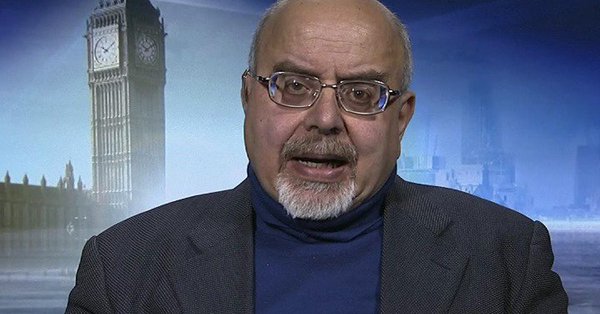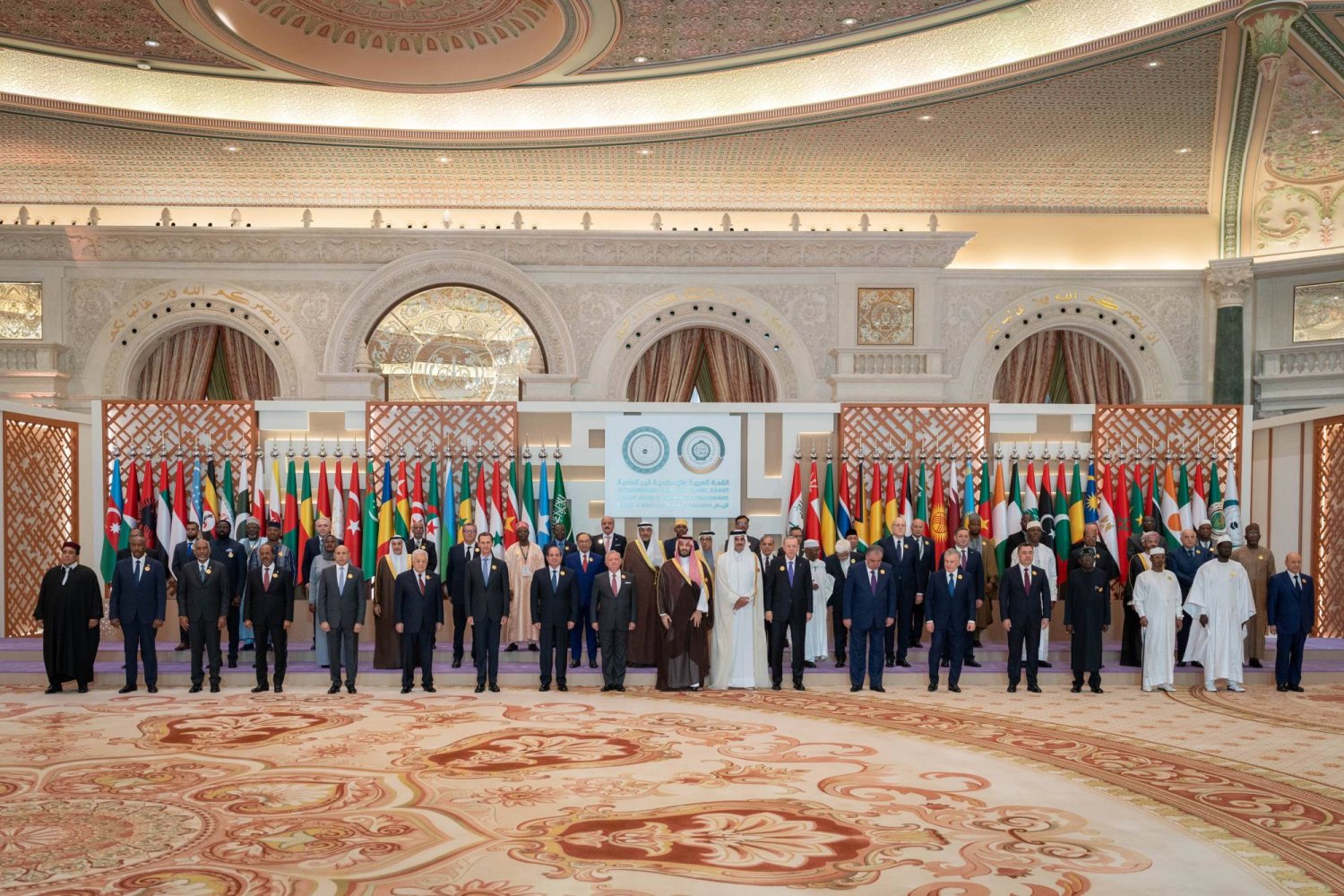Lebanon’s Future Cabinet Awaiting an Absent Entente
Eyad Abu Shakra/Asharq Al Awsat/August 31/18
he intractable complications hindering the formation of Lebanon’s future cabinet, like those of the country’s problems throughout its political history, are based on ignoring the facts and concealing the causes.
Everyone seems to be lost between the parliamentary blocs competing for posts and respective representational sizes, each thinks it deserves and has to fight for.
From the outside, this is the image various Lebanese factions prefer to present while covering up the root cause of the problem which – perhaps – none of them likes to discuss openly. None of the players, who have misled the Lebanese people by claiming to be the “masters” of their sectarian and political arenas, would be willing to eat the “humble cake” by admitting to being a “pawn” that follows orders, and heeds “advice”.
None of those flexing their muscles on TV screens, and boasting about their local and regional “strength” is modest enough to admit that he is much weaker than the mechanics of the regional game. Moreover, none finds it is appropriate to say that the regional “scenario” is awaiting a gloomy and confused global entanglement that seems lost between vengeful sanctions, tactical camouflages and waits for US mid-term elections, which may or may not decide more than political volume in Washington.
The most recent “innovation” on the Lebanese political stage, in the midst of a multitude of summer festivals, has been the Presidential “veiled threat” to put an end to the lengthy failure to form a new cabinet. In tandem with this “threat”, there was a concentrated media and legal blackmailing campaign from groups whose political and “security” connections are well known to most Lebanese.
Through raising the issue of Syrian refugees and displaced, and taking it away from the “current acting” cabinet to the security services, every ambitious minister is now acting on his (her) own, with total disregard to a collective government responsibility that is supposed to exist in any respectable state.
This abnormal situation, however, was not born yesterday, but was rather caused by an illogical agreement reached when one political camp voted to elect a president from an opposing camp that, practically and diligently, strives to eliminate it!
The intention of elimination has been clear with two facts;
Fact 1, is when President Michel Aoun’s partisans labeled him as “the strong President”, implying that all presidents elected under the “Taif Accord” – which is enshrined in the Lebanese Constitution – were “weak presidents”. Noteworthy here, is that Aoun was, and may still be, the staunchest opponent of the “Taif Accord”. Then, during the formation of the lists of candidates for the latest parliamentary elections, Aoun’s Free Patriotic Movement (FPM) – now led by his son-in-law Foreign Minister Gebran Bassil – were keen to use the term “strong” in almost every name they chose for their electoral lists.
Fact 2, is that despite Aoun’s FPM and the “Shiite bloc” of “Hezbollah” and AMAL Movement agreeing to nominate Saad Al-Hariri for the post of Prime Minister, the latter was soon faced with impossible demands that aim to weaken, if not finish, him politically altogether. Indeed, Hariri’s Future Movement has emerged as the largest representative of Lebanon’s Sunni Muslims to whom the Constitution gives the post of prime minister. So, unable, constitutionally to ignore him, the Aounist and Shiite opponents began their “demolition” job following two paths: the first, to demand for a bigger share of Cabinet post including posts reserved to Aoun, in his capacity as president, in addition to the FPM posts; and the second, to force Hariri to “normalize” relations with the Syrian regime.
For some time now, the Lebanese media, regardless of political affiliations, have been talking about three unresolved problems preventing the formation of Hariri’s next cabinet:
1- A “Christian Problem” related to the representation of “The Lebanese Forces” after its relative electoral success in doubling its number of MPs (deputies). However, Aoun and his backers continue to refuse The Lebanese Forces’ demands, noting that the latter represents the most powerful Christian political force opposed to “Hezbollah” and the “Damascus – Tehran axis”, and standing against normalizing relations with Bashar Al-Assad’s regime.
2- What Aoun and his backers call the “Druze Problem”. In this case, Aoun and his camp are insisting on giving a cabinet post to their Druze ally Talal Arslan from the three cabinet seats reserved to the Druze community. Arsalan, incidentally, is the only Druze MP opposed to the bloc headed by his Druze arch-rival Walid Joumblatt who has won seven out of the eight Druze parliamentary seats. Moreover, Arslan is partly indebted to Joumblatt’s decision not to put forward a challenger for his seat, thus ensuring his election. Today, observers believe that there are two reasons behind Aoun’s insistence to appoint Arslan; the first being to gain favor with Assad’s regime (who supports Arslan), and the second is to drive a wedge within, and apply the principle of “divide and conquer” against the Druze community.
3- The third problem is a “Sunni Problem”, which is somehow similar to the “Druze Problem”. It is about the insistence on appointing pro-“Hezbollah” and Assad Sunni MPs, who have been mostly elected by the votes of the “Shiite bloc” and Aoun’s Christian power base, and benefitted from the abstention of many Sunni voters who were unhappy with the electoral deal struck just before last May’s elections between Hariri and Aoun.
A couple of days ago though, the political crisis took a new “legal” turn, when a pro-Aoun legal and constitutional “expert” claimed that the Lebanese president had every right to intervene in the ongoing crisis, including taking the step of withdrawing the offer to Hariri to form the Cabinet. Going further, the expert said such a move “would be constitutional and does not contradict the Taif Accord”.
Sure enough, such an argument provoked a counter legal and constitutional argument by a legal authority, who happens to be also a former justice minister. The latter not only rejected the validity of the former view, but went further to claim that the crisis would only be resolved by abolishing the “Doha Agreement” – which was imposed on Lebanon by force after “Hezbollah” and its allies had occupied Downtown Beirut for around a year and a half, and returning to the “spirit and letter of the Constitution as regards the forming of cabinets.”
Quite right!
What is really needed in Lebanon is abiding by the “spirit” even before the “letter” of the Constitution; as there can be no “entente” with those who do not believe in it, no governments with those who do not care less about them, and most certainly no state for those who do not deserve one!
حكومة لبنان تنتظر «الوفاق»… المغيَّب عمداً
إياد أبو شقرا/الشرق الأوسط/26 آب/18
أزمة التشكيل المتعسّر للحكومة اللبنانية العتيدة، مثل معظم الأزمات السياسية التي عرفها لبنان في تاريخه السياسي، تقوم على تهريب الحقائق و«تجهيل» الفاعل. الجميع تائه بين مطالب الكتل التوزيرية والأحجام التمثيلية التي ترى أن من حقّها النضال من أجل الحصول عليها.
هذا في الظاهر. وهذه هي الصورة التي ترى التيارات اللبنانية المتصارعة أن من مصلحتها إبرازها، مقابل التغطية على جوهر الأزمة الذي لا يودّ أحد – ربما – الخوض فيه علناً. إذ لا أحد من اللاعبين الذين أوهموا اللبنانيين بأنهم «أسياد» حلباتهم الطائفية والسياسية، يرضى بإذلال كبريائه، والاعتراف بأنه «بيدق شطرنج» يؤمر فيأتمر… وتصدر إليه «النصائح» فينصاع.
لا أحد ممّن يعرضون عضلاتهم على شاشات التلفزيون، ويتفاخرون بقوتهم محلياً وإقليمياً، يناسبه التواضع إلى حد الإقرار بأن خيوط اللعبة أكبر منه. ولا أحد يناسبه القول إن «السيناريو» الإقليمي المستقوي به… أيضاً ينتظر جلاء مشهد دولي مرتبك وقاتم وضائع بين عقوبات انتقامية، وفجوات وفراغات دولية، وتستّر تكتيكي، وانتظار مقلق لانتخابات نصفية أميركية قد تحدد الأحجام – وأكثر من الأحجام – في واشنطن.
أحدث «البدع» التي طرأت على المسرح السياسي اللبناني، وسط المهرجانات السياحية الصيفية، التلويح بخطوة رئاسية «حاسمة» لإنهاء حالة المراوحة في تشكيل الحكومة. ورافقت «التلويح» التهديدي الموجّه لرئيس الحكومة المكلّف سعد الحريري حملة ابتزاز إعلامية وقانونية مركّزة من جهات ولاءاتها السياسية والأمنية معروفة لمعظم اللبنانيين.
وعبر إثارة ملف اللاجئين والنازحين السوريين، ثم سحبه فعلياً إلى الأجهزة الأمنية من حكومة «تصريف أعمال»، بات كل وزير طموح فيها يقرّر ما يشاء بمعزل عن «المسؤولية الجماعية» المفترض توافرها في أي دولة تحترم نفسها.
لكن هذا الوضع الشاذ لم يولد البارحة، بل وُلد مع التوافق «الفوقي» اللامنطقي على انتخاب أفرقاء من معسكر سياسي رئيس جمهورية من معسكر آخر يهدف عملياً إلى إلغائهم.
نية الإلغاء كانت واضحة من أمرين:
الأمر الأول، مبادرة تيار رئيس الجمهورية العماد ميشال عون إلى إطلاق وصف «الرئيس القوي» عليه، ما يعني ضمناً أن الرؤساء الذين انتخبوا قبله بموجب «اتفاق الطائف»، الذي بات جزءاً لا يتجزأ من الدستور، «رؤساء ضعفاء». ويُذكر أن عون كان – ولعله ما زال – رأس معارضي «اتفاق الطائف». ولاحقاً، لدى تشكيل اللوائح الانتخابية قبيل الانتخابات البرلمانية الأخيرة كان ثمة حرصٌ من قبل التيار العوني، الذي يترأسه حالياً وزير الخارجية جبران باسيل، صهر الرئيس، على استخدام وصف «القوي» في معظم اللوائح التي ضمّت مرشحي التيار.
الأمر الثاني، إنه على الرغم من قبول التيار العوني وتكتل «الثنائي الشيعي» (أي «حزب الله» وحركة «أمل»)، الذي كان القوة الدافعة لترشيح عون رئيساً، بتسمية زعيم تيار «المستقبل» سعد الحريري لرئاسة الحكومة، فإن الحريري سرعان ما حوصر بطلبات يعتبرها كثيرون – بمَن فيهم الرئيس المكلّف نفسه – طلبات تعجيزية الغاية منها إحراجه لإخراجه. والحقيقة، أنه بمجرّد صدور التكليف الرسمي، الذي أسهم فيه بقاء كتلة الحريري أكبر كتلة ممثلة للمسلمين السنّة بعد الانتخابات الأخيرة، بدأ مسلسل الضغوط الإحراجية الإخراجية في اتجاهين؛ الاتجاه الأول يتصل بالحجم التمثيلي للكتل النيابية، بما فيه إصرار رئيس الجمهورية على أن تكون له حصة كبيرة خاصة به من الوزراء، بجانب حصة تياره. والاتجاه الثاني سياسي، من أخطر أبعاده ومضامينه تجاهل اعتراضات الرئيس المكلّف… والمضي قُدماً في «تطبيع» التيار العوني، وطبعاً «الثنائي الشيعي»، العلاقات مع النظام السوري.
منذ بعض الوقت يتحدّث الإعلام اللبناني، المحسوب على هذا المعسكر أو ذاك، عن وجود ثلاث عُقد وراء تعسّر تشكيل الحكومة الحريرية المنتظرة.
– العقدة الأولى «عقدة مسيحية» تتعلق بالحجم الذي تطلبه كتلة حزب «القوات اللبنانية» بعد نجاحها النسبي اللافت في انتخابات الربيع الماضي، وهو حجم يرفضه التيار العوني ومناصرو رئيس الجمهورية. ومعلومٌ أن «القوات» تشكِّل راهناً أقوى قوة مسيحية تناوئ حزب الله و«محور دمشق – طهران» وترفض التطبيع مع نظام بشار الأسد.
– العقدة الثانية يسميها التيار العوني وداعموه «العقدة الدرزية»، والسبب إصرار هؤلاء على توزير حليفهم الوزير طلال أرسلان من حصّة الموحّدين الدروز (3 وزراء) مع أنه وحده يمثل معارضي الزعيم الاشتراكي وليد جنبلاط الذي لديه ولدى حلفائه 7 نواب من الدروز من أصل 8. وثمة من يقول إن وراء إصرار فريق رئيس الجمهورية على توزير أرسلان إرضاء نظام الأسد من ناحية، وشق صفّ الموحّدين الدروز من ناحية ثانية.
– العقدة الثالثة عقدة «سنّية»… ولا تختلف كثيراً عن سابقتها الدرزية، لكنها تتصل بحلفاء حزب الله ونظام الأسد من النواب السنّة الذين انتخبوا أخيراً. وجلّ هؤلاء فازوا بأصوات «الثنائي الشيعي» ومناصري رئيس الجمهورية من المسيحيين، واستفادوا من استنكاف نسبة من مناصري تيار «المستقبل» عن التصويت اعتراضاً على تحالف الحريري انتخابياً مع التيار العوني في الربيع الماضي.
بالأمس، اتخذت الأزمة السياسية بعداً «قانونياً» عندما «اجتهد» أحدهم في مطالعة قانونية فأجاز لرئيس الجمهورية التدخّل لإنهاء أزمة التشكيل، وصولاً إلى سحب التكليف من الرئيس المكلّف. وقرّر هذا «الأحدهم» أن خطوة كهذه من رئيس الجمهورية «ستكون ضمن الدستور ولا تشكل خرقاً له أو لاتفاق الطائف!».
بطبيعة الحال، استثار هذا الاجتهاد اجتهاداً مضاداً من مرجع قانوني، هو أيضاً وزير سابق، لم يكتفِ برفضه، بل ذهب أبعد من ذلك ليقول إن الحل يتمثل في طي صفحة «اتفاق الدوحة»، الذي فُرض على لبنان تحت ضغط احتلال حزب الله وأتباعه وحلفائه وسط بيروت نحو سنة ونصف السنة، ومن ثم، العودة إلى أحكام الدستور واعتمادها نصاً وروحاً في ما يخصّ تأليف الحكومة.
نعم… و«روحاً» قبل «نصاً»، إذ لا وفاق ممكناً مع الذين لا يؤمنون به، ولا حكومات مع الذين لا يعبأون بها، وحتماً… لا وطن للذين لا يستحقّون أوطاناً.




















